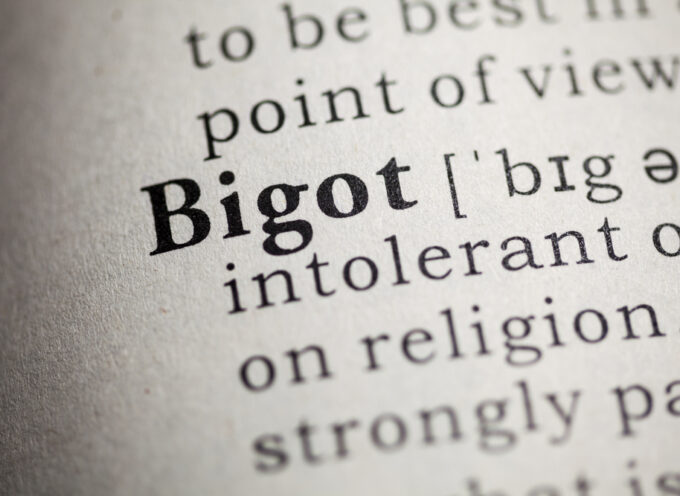During the 2016 election, radio host Ira Glass interviewed his Uncle Lenny, an 81-year-old retired plastic surgeon who gets all his news from conservative outlets. During the interview Uncle Lenny made several, um, audacious claims about President Obama.
Uncle Lenny started by boldly declaring that Obama has “played more rounds of golf than any president in history.” (Not true: Ike Eisenhower played three times as much, and Woodrow Wilson four.) He continued by saying, “[Obama] claims to have run the Harvard Law Review. Why didn’t he write a single article for them?” (Obama did, in fact, edit the Harvard Law Review. And as editor, he wrote case analyses for it.) Then Uncle Lenny went for broke, claiming, “No one in Obama’s law school class can ever remember having seen him there.” Glass, who appears to possess the patience of a saint, calmly pointed out that a friend of his knew Obama when they were in law school together.
Uncle Lenny, not having a ready reply, shifted fields. He declared that President Obama chose to ignore laws about deporting people in the country illegally. Glass, still attempting to keep the discussion within the realm of recordable evidence, pointed out that Obama had actually deported more people than any other president. Nearly 3 million. Uncle Lenny, painted into a corner for the last time, retreated to his happy place: “I don’t believe that, Ira, for one minute. I don’t believe that.” You’ve got to admire Uncle Lenny’s dedication.
After the interview with Uncle Lenny, Glass concluded, “Facts do not have a fighting chance against this right-wing fable.” Glass is right. I think he’s ignoring the fact that the left has unassailable fables of its own. But he’s right. People today seem more prone to stick to their position, even after being shown evidence to the contrary. If it doesn’t fit within my view, it must not be true.
Now, the blame for the fake news phenomenon does not fall squarely on the shoulders of conservatives such as Uncle Lenny. I chose the Uncle Lenny story because it’s a good one and because I’ve spent most of my career criticizing silliness on the Left. And given that I like to consider myself an equal opportunity offender, I thought I’d start off this article by exposing some silliness on the Right.
On the Left and the Right, we are experiencing a world filled with “fake news,” “alternative facts,” a “post-truth” approach to reality. It’s a world filled with “Uncle Lennys” who have—wittingly or unwittingly—embraced our “post-truth” world. It’s a world in which the views of people on the Left and the Right are shaped more by their long-held personal opinions and by appeals to emotion than they are to objective facts. Even worse, it’s a world in which an increasing number of public influencers purposely convey partial truths and outright lies in order to accomplish their personal, professional, or political goals.
Why has fake news become such a problem today? Conservatives tend to blame the mainstream media and left-wing influencers. Progressives tend to blame the more conservative outlets and right-wing influencers. Both explanations are superficial and simplistic; only a gullible or dishonest person could be satisfied so easily. The rise of fake news is complex and multi-faceted, including at least three significant factors:
The Move from “Pyramid” to “Pancake” Authorities
First, we are experiencing the breakdown in the authority of the national media outlets and other information sources. Historically, Americans have relied upon pyramid-shaped hierarchical authorities, such as the Encyclopedia Britannica (for knowledge articles), colleges and universities (for education and research), and national newspapers (for news and opinion). On the whole, we trusted these authorities because they had a system of checks-and-balances that included authoritative fact-checkers and editors who made it likely they conveyed information reliably. Walter Cronkite could sign off his news stories with, “And that’s the way it is,” and we nodded along.
However, as our society has polarized politically, and as the Internet has flattened the information world into more of a “pancake” than a “pyramid” shape, our locus of trust has shifted. Now we tend to trust open-source information outlets like Wikipedia, special-interest websites, and blogs. We trust these “pancake” authorities based on the reputation of their distributed accountability system. We trust—for the most part—the accuracy of information in a Wikipedia article because it has been filtered through hundreds or even thousands of self-appointed editors and is backed by an error-correction system that is open to public accountability.
The more interesting question is not “Which information outlets can we trust?” but “How should we determine which outlets are trustworthy?” As I see it, the initial and primary basis for almost all authority is reputation (what Aristotle would call ethos). We trust the entries in the Encyclopedia Britannica because of the encyclopedia’s reputation. If a Britannica article has errors, we reason, somebody will report it to Britannica and the article will be corrected. In other words, we trust that an error-correction system similar to the one at Wikipedia is also in effect at Britannica.
Encyclopedias, though, tend to deal with facts that are more or less established. What about information that is highly contested or open to interpretation—like current events? In such instances, we tend to side with the interpretation taken by people who share our own political ideology, religious view, or social perspective. In addition, most Americans get their information and opinion from information outlets that confirm what they already believe. In other words, we end up placing ourselves in an “echo chamber,” a situation in which our beliefs and perceptions are echoed back to us by people who have the same beliefs and perceptions.
The Rise of New Technologies That Reward Hucksters and Carnival Barkers
In addition to the breakdown of national media outlets, we are experiencing the rise of new technologies that enable false information to spread instantaneously and globally. Back in the 19th century, when fake news emerged as a phenomenon in the Western newspaper industry, the news couldn’t spread as quickly or as broadly. But fake news today isn’t spread primarily via newspapers delivered to our doorstep. It is delivered by websites and social media that enables it to be instantaneously accessible and potentially viral. Additionally, analytics software allows information outlets to know which types of stories get the most “clicks.” Websites with the most clicks make the most money from advertisers. Websites with the most money stay in business. Can you guess what all of that adds up to? An information ecosystem that rewards sensational articles. Don’t have a true sensational article on offer at the moment? Well, let’s leave truth for another day and make our money today.
The Gullibility and Bad Will of Many American Citizens
But we can’t just blame media outlets and emerging technologies, drop the mic, and walk off stage. A large part of blame falls to “We the People.”
It is human nature to look for news and opinion from outlets that affirm us and our views—over against the views of the “stupid” and “bad” people on the other side of the aisle. We don’t like to have our view of the world challenged or called into question. Part of this is understandable and natural. If I have chosen my beliefs intentionally and believe them with conviction, it makes sense that I would resist viewpoints that challenge those beliefs.
However, if we want to know the whole truth rather than partial truths, and if we want to have a functioning democratic republic rather than a national dumpster fire, we need to put on our big boy pants and learn to deal with cognitive dissonance. We need to value truth more than we value political “point-scoring.” If we don’t, we’re part of the problem.
How can we lay all of the blame on national media outlets when we rush to get our information from special-interest websites, political spinmeisters, conspiracy theorists, Facebook shares, and email forwards whose views systematically confirm our own biases? The mainstream media outlets may be biased, but they make their money off of everyday Americans who watch their shows and read their articles. If we stopped eating what they dish out, they’d change their menu.
Make America Honest Again (#MAHA)
Put those three reasons together and you can begin to see why fake news is such a problem. We’re losing faith in our authoritative media outlets, seeing the rise of a host of other dodgy “news” sources, ignoring facts that don’t fit our assumptions, and dining on garbage news and trash opinion.
Jesus had something to say about people who were unwilling to seek the truth. In a first-century version of an “Uncle Lenny” conversation, Jesus tells a parable about Lazarus and a certain rich man. In this parable, Jesus makes the point that, if a man were to rise from the dead, many people would not believe the evidence because they had already decided not to take God at his word. In other words, if people have already made up their minds, they will ignore the evidence. Jesus’ point is that it’s sinful for us to ignore the truth because of our preconceived opinions.
So let’s stop ignoring the truth. Let’s fight back against fake news (here are five ways to fight back). Let’s elect politicians who are well-informed, are known for wisdom and good judgment, and weigh their public words carefully. Let’s demand honesty and integrity from journalists, writers, and pundits. Let’s demand wisdom and discernment from ourselves and fellow citizens as we imbibe news and opinion. In doing so, we can help make America honest again.
Subscribe
Never miss a post! Have all new posts delivered straight to your inbox.








Hey Bruce, good article, but I think you may have given us, the American public, more benefit of the doubt than we deserve when you say “only a gullible or dishonest person could be satisfied so easily.” That sentence implies that we’re actually looking for information with the intent to build an informed opinion, and are either taken in by tricksters, or intentionally leaving out details. I don’t think so. I think we’re all just lazy. As you well know, more than most, forming an opinion and finding facts to logically defend it takes a great deal of work. In my (uninformed) opinion, folks don’t want to have an opinion that can be attacked, which therefore requires fact-based, logical defense, so they/we gravitate toward the loudest, most sensational voices whose message, at least in part, says “only the ignorant don’t agree, and they’re not worth your time.” So then, I have an easy to find opinion, with a sensational message, and no requirement to defend my new opinion. Taking part in the American experiment completed, I can now go watch my favorite TV show. Of course I have no data to back that up, and secretly hope others who read it will copy and post it online until it goes viral.
Matt, you make a good point. often we are lazy. Thank you for taking the time to contribute.
Hey Dr Ashford great article as always but the title struck me as a little “clickbaity” was that intended as ironic or humorous? Not trying to be mean or critical just seemed funny considering the subject material.
Hey John, it was playful. I think it is a good thing to write titles that make people want to click, but not OK if the title misrepresents the content of the article. The title I wrote represented accurately my article, and I hope it also made people want to click…
Sad that he had to go back 56 years to find a president with more golf.
Likewise, the change in reported statistics rose the Obama deportation number. Nothing that was actually changed by the administration. http://www.latimes.com/nation/la-na-obama-deportations-20140402-story.html
The author’s mistaken (purposeful?) attribute the fact that Obama was the editor of the Harvard Law Review, as attributable to all the articles. He never penned a single article himself as the author that has been found. Politico is now trying to attribute an unsigned article to him.
The writer of the article you use obviously has an agenda to push. My question is, do you?
Hi Carey, thank you. I’ll check into the deportation statistics. As for the Law Review, editors of journals usually write unsigned articles such as introductions to journal issues, case analyses, and such. It would be odd for Obama not to have done so. That’s the job of an editor. As for whether i have agendas, yes. I do. My agenda is to encourage all of us to do our best to get the facts right before we criticize.